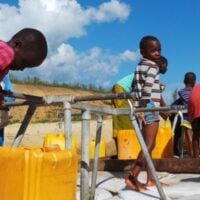Deadline: 17-Dec-22
Indigenous Services Canada has announced the First Nations Environmental Contaminants Program (FNECP) for Communities and Organizations South of the 60th Parallel.
Indigenous Services Canada’s First Nations Environmental Contaminants Program (FNECP) is helping First Nations improve their health and wellbeing by supporting their capacity to identify, investigate and characterize the potential impact of exposure to environmental hazards on their health and environment through community-based research, monitoring, risk assessment and risk communication.
What are the areas of primary concern?
- Chemical hazards
- Other environmental contaminants of potential health concern to First Nations communities (not outlined here) may be a part of research projects under the FNECP if there is documented evidence or peer-reviewed literature of these substances being a hazard to human health:
- Persistent organic pollutants monitored under the Stockholm Convention on Persistent Organic Pollutants (2004-2020).
- Heavy metals monitored under the Convention on Long-range Transboundary Air Pollution Protocol on Heavy Metals (1998–2012) (cadmium, lead and mercury) as well as arsenic.
- Agricultural chemicals such as pesticides, herbicides, insecticides, fungicides, rodenticides, algicides, and fertilizers
- Pharmaceutical residues in drinking and surface water as well as in traditional/country/local foods
- Toxins such as aflatoxins, mycotoxins, marine biotoxins (in shellfish)
- Other environmental contaminants of potential health concern to First Nations communities (not outlined here) may be a part of research projects under the FNECP if there is documented evidence or peer-reviewed literature of these substances being a hazard to human health:
- Biological hazards specifically in traditional/country/local foods
- Escherichia coli
- Salmonella
- Clostridium
- botulinum
- Clostridium
- perfringens
- Campylobacter
- jejuni
- Listeria
- Coliforms
- Staphylococcus
- Bacillus cereus
- Pseudomonas
- Fungi
- Moulds
- Parasites
- Viruses
- Prions
- Radiological Hazards
- (radon – a radioactive, colourless, odourless gas occurring naturally as an indirect decay product of uranium or thorium).
Funding Information
- Selected Knowledge integration and Risk communication proposals can receive up to $25,000 per project in funding over one year (April 2023 to March 2024).
- Selected Baseline Assessment Proposals on the state of Health and the Environment (BAPHE) proposals can receive up to $125,000 per project in funding over two-years (April 2023 to March 2025).
- Selected Primary research proposals can receive up to $125,000 per project in funding over two years (April 2023 to March 2025).
Kinds of Proposals
- Primary research proposals should:
- Focus on an environmental hazard identification, investigation and characterization
- Collect sufficient information on both the level(s) of the environmental contaminant(s) of concern in different media (food, water, soil or air) and the human exposure routes (dietary surveys and water consumption surveys for ingestion, frequency of recreational water exposure (e.g., swimming) for dermal contact/inhalation, frequency and duration that people spend at home for radon exposure assessment, etc.)
- Knowledge integration proposals
- Secondary research that integrates existing scientific data and community-based knowledge sources on risk assessment and risk communication of chemical, biological and radiological exposure in First Nations communities may be supported. This funding stream can be used to support knowledge integration about an environmental public health issue or hazard of concern. In this scenario, this proposal could be submitted prior to and in preparation for submitting a primary research proposal in the next funding period, should the knowledge integration demonstrate the need.
- Risk communication proposals
- This funding stream can be used for extensive and sophisticated risk communication of the results of previously completed primary research to increase First Nations’ awareness of the new knowledge and its implications for human health.
- Baseline Assessment Proposals on the state of Health and the Environment (BAPHE)
- This new component of the FNECP aims to strengthen First Nations’ capacity to engage in the Impact Assessments process, and will support First Nations interested in assessing the baseline health and environment status of their community prior to the implementation of planned large-scale industrial projects on their traditional territories, when such projects may have potential health impacts on the community.
Eligibility Criteria
- First Nations communities (on-reserve) and First Nations organizations south of 60° parallel in Alberta, Saskatchewan, Manitoba, Ontario, Québec and Atlantic Canada
- Bands, Districts, Tribal Councils and Associations, Councils, governments of selfgoverning First Nation communities and regions
- Non-government and voluntary associations and organizations, including non-profit corporations that work on behalf of or in partnership with entities
- The FNECP program requires that:
- Primary research or the BAPHE projects be carried out in partnership with academically trained scientists (a PhD or MSc-level) with a track record of peerreviewed publications in the field of the proposed project
- Knowledge integration projects be carried out in partnership with a project lead with at least a Bachelor’s degree in environmental sciences, health sciences or education
- Risk communication projects be carried out in partnership with academically trained experts (at least a BSc or MSc -level) with proven experience in conducting risk communication in the field of the proposed project
- The scientific/academic partner(s) must be identified in the proposal.
- Knowledge integration and risk communication proposals cannot be combined with a primary research proposal or the BAPHE component.
- Only one proposal per First Nation will be accepted.
- No more than two proposals from the same Principal Investigator/Research team will be accepted.
- FNECP funded projects that are still in progress cannot apply for new/additional funding for the same or similar project until its conclusion and the project report on the analysis of results has been submitted and approved by the program.
For more information, visit https://www.sac-isc.gc.ca/eng/1654111962122/1654111988366








































